The Secret of Longevity: Lifestyle is More Important than Genes
Surprise! Lifestyle surpasses genes in health and aging, reveals study with half a million people. Goodbye, dementia and heart problems!...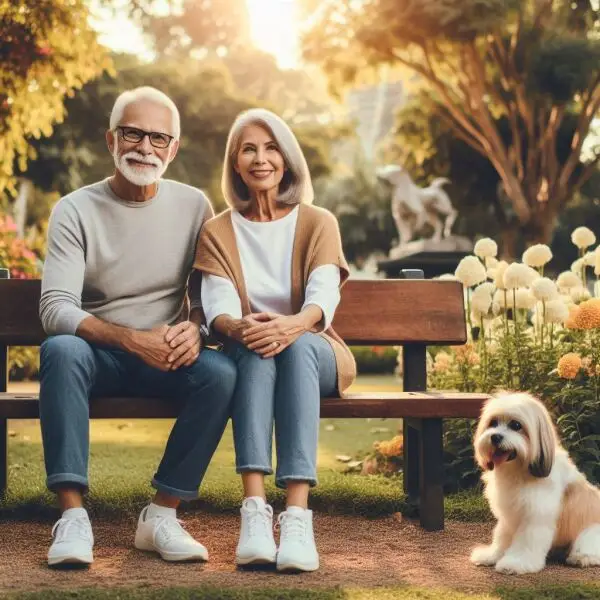
Table of Contents
- The Unraveled Mystery of Health and Aging
- Beyond Genes: The Environment as the Protagonist
- The exposome: a revolutionary concept
- Action: the key to preventing diseases
Follow Patricia Alegsa on Pinterest!
The Unraveled Mystery of Health and Aging
Have you ever wondered why some people seem to defy the passage of time while others struggle with age-related illnesses? It's not just about genetics, although we know that our genes have a significant influence on us.
An international team of scientists has launched a revealing study that could change our perspective on aging.
This study analyzed data from half a million people and scrutinized the crucial role that socio-environmental factors play in the development of diseases such as dementia and heart conditions.
Scientists have always known that the environment has an impact on our health, but this study makes it crystal clear. And what a wealth of data, almost an ocean! It was found that factors such as smoking, physical activity, and living conditions have a more significant impact on our health than genes themselves.
Beyond Genes: The Environment as the Protagonist
Scientists have always known that the environment has an impact on our health, but this study makes it crystal clear. And what a wealth of data, almost an ocean! It was found that factors such as smoking, physical activity, and living conditions have a more significant impact on our health than genes themselves.
Surprised? Not me, considering that genetics explained less than 2% of the risk of death compared to the 17% attributed to lifestyle and other environmental factors.
Professor Cornelia van Duijn, an authority in epidemiology, highlighted how these exposures can be modified, either at the individual level or through government policies. This means we are not entirely at the mercy of our genes. Great news for those who think that changing habits doesn't help!
Here comes a word that will make you sound like an expert at the next dinner: exposome. If you didn't know it yet, it refers to all the environmental exposures we have been subjected to since we were born.
Professor Cornelia van Duijn, an authority in epidemiology, highlighted how these exposures can be modified, either at the individual level or through government policies. This means we are not entirely at the mercy of our genes. Great news for those who think that changing habits doesn't help!
The exposome: a revolutionary concept
Here comes a word that will make you sound like an expert at the next dinner: exposome. If you didn't know it yet, it refers to all the environmental exposures we have been subjected to since we were born.
This study used an exposome approach to quantify how the environment and genetics contribute to aging.
Can you imagine a clock that measures how quickly we age? Well, scientists employed an "aging clock" based on blood protein levels.
This clock allowed linking environmental exposures with biological aging and early mortality. It's like science fiction, but in real life!
Professor Bryan Williams reminds us that income and environment should not dictate who lives longer and better. However, the reality is that for many, it does.
Action: the key to preventing diseases
Professor Bryan Williams reminds us that income and environment should not dictate who lives longer and better. However, the reality is that for many, it does.
The study confirms that interventions focused on our socioeconomic contexts and behaviors can prevent many age-related diseases. This sounds like a golden opportunity to improve our overall health, don’t you think?
But be careful, as Professor Felicity Gavins rightly points out, we need more research to confirm these relationships and turn them into effective policies. Science does not stop, and neither should we.
In summary, while some risk factors are inevitable, we have the power to change our environment and habits to live longer and healthier lives. So, dear reader, what changes do you consider making in your life after learning about these findings?
But be careful, as Professor Felicity Gavins rightly points out, we need more research to confirm these relationships and turn them into effective policies. Science does not stop, and neither should we.
In summary, while some risk factors are inevitable, we have the power to change our environment and habits to live longer and healthier lives. So, dear reader, what changes do you consider making in your life after learning about these findings?
Subscribe to the free weekly horoscope
Aquarius Aries Cancer Capricorn Gemini Leo Libra Pisces Sagittarius Scorpio Taurus Virgo
-
 Goodbye Cholesterol! 3 Easy Dietary Changes to Reduce it Quickly
Goodbye Cholesterol! 3 Easy Dietary Changes to Reduce it Quickly
Lower cholesterol fast with 3 simple changes to your diet. Improve your cardiovascular health easily and effectively. -
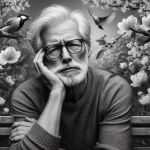 Warning! 5 Signs of Alzheimer's Beyond Common Forgetfulness
Warning! 5 Signs of Alzheimer's Beyond Common Forgetfulness
Discover 5 early signs of Alzheimer's: from behavioral changes to money troubles, these hints could be a warning. Find out now! -
 Washing your feet with lemon: improves circulation, relaxes, fights foot odor
Washing your feet with lemon: improves circulation, relaxes, fights foot odor
Discover why washing your feet with lemon and warm water improves circulation, relaxes, fights foot odor, and revitalizes your well-being. -
 Quinoa, a cereal that is a superfood for your health
Quinoa, a cereal that is a superfood for your health
Discover a cereal with an exceptional nutritional profile and multiple health benefits. Incorporate energy and wellness into your diet! -
 How to Naturally Increase Serotonin and Feel Better
How to Naturally Increase Serotonin and Feel Better
Discover how to naturally increase the 'happiness hormone.' Nutrition and laughter are key to elevating serotonin and improving your well-being.
I am Patricia Alegsa
I have been writing horoscope and self-help articles professionally for over 20 years.
Subscribe to the free weekly horoscope
Receive weekly in your email the horoscope and our new articles on love, family, work, dreams and more news. We do NOT send spam.
Astral and numerological analysis
-
 Discover your future, secret personality traits and how to improve in love, business and life in general
Discover your future, secret personality traits and how to improve in love, business and life in general
-
 Online Dream Interpreter: with artificial intelligence
Do you want to know what a dream you had means? Discover the power of understanding your dreams with our advanced online dream interpreter using artificial intelligence that responds to you in seconds.
Online Dream Interpreter: with artificial intelligence
Do you want to know what a dream you had means? Discover the power of understanding your dreams with our advanced online dream interpreter using artificial intelligence that responds to you in seconds.
-
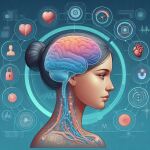 Take Care of Your Brain! 10 Keys to Slowing Cognitive Decline
Take Care of Your Brain! 10 Keys to Slowing Cognitive Decline
Protect your brain! Up to 45% of dementias can be prevented with simple changes. Discover the 10 keys to taking care of your mind every day. ?? -
 Do you feel tired all day? Here's what you can do about it
Do you feel tired all day? Here's what you can do about it
Tired? Discover 7 habits that will give you energy and activate your brain. Simple changes in diet, relaxation, and exercise will work wonders. Let's wake up! -
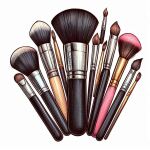 Watch Out! Your makeup brushes might harbor more bacteria than a toilet
Watch Out! Your makeup brushes might harbor more bacteria than a toilet
Surprise! Makeup brushes can harbor more bacteria than a toilet. Make sure to clean those brushes thoroughly to avoid a germ party. -
 The Best Ways to Eat Eggs to Boost Their Proteins
The Best Ways to Eat Eggs to Boost Their Proteins
Discover the best way to enjoy eggs and maximize the absorption of their proteins. This nutritious and versatile food is perfect in any recipe. -
 Spring Astenia? Discover how to manage its impact on your mood
Spring Astenia? Discover how to manage its impact on your mood
Spring Astenia: discover how the change of season impacts your energy and mood. Learn to recognize and manage its effects. -
 Influencer of obesity dies at 24 years old
Influencer of obesity dies at 24 years old
Farewell to Efecan Kültür, the Turkish influencer known for food challenges. He won over fans with his mukbang videos, eating like a champion in front of the camera. -
 Valerian: your natural ally for better sleep and calming anxiety
Valerian: your natural ally for better sleep and calming anxiety
Discover what valerian is and how to use it as a natural sedative for better sleep. Learn about its benefits, dosage, and precautions. Sweet dreams! -
 Weekly Horoscope: Discover the Energies from October 7 to 13, 2024
Weekly Horoscope: Discover the Energies from October 7 to 13, 2024
Discover how an astrological event influences your week. Take advantage of the energy from the heavens and make the most of your horoscope. Don't miss it! -
 Strange discovery on Mars, a rock that surprises NASA
Strange discovery on Mars, a rock that surprises NASA
A strange finding on Mars: Perseverance discovers a rock with zebra markings, sparking the interest of scientists and new theories in the Jezero crater. -
 What does it mean to dream of mist or fog?
What does it mean to dream of mist or fog?
Discover the meaning behind your dreams with mist or fog. This article will help you understand the messages your subconscious is sending you - read more here! -
 September 2025 Horoscope for All Zodiac Signs
September 2025 Horoscope for All Zodiac Signs
Here is a summary for each zodiac sign for September 2025: discover how this month will go for you according to your zodiac sign. -
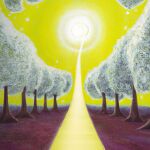 What does it mean to dream of walking?
What does it mean to dream of walking?
Discover the hidden meaning behind walking in your dreams with our article. Learn how this symbol can reveal details about your present and future. -
 How to Rest Our Brain from Social Media
How to Rest Our Brain from Social Media
Give Your Brain a Break: Disconnect from Social Media and Combat Neurochemical Imbalance for Lasting Well-being Without Relying on Technology.